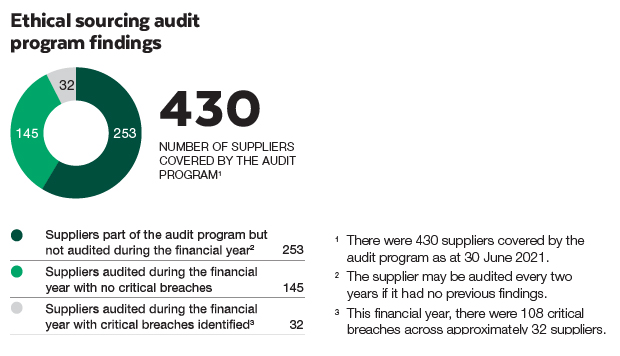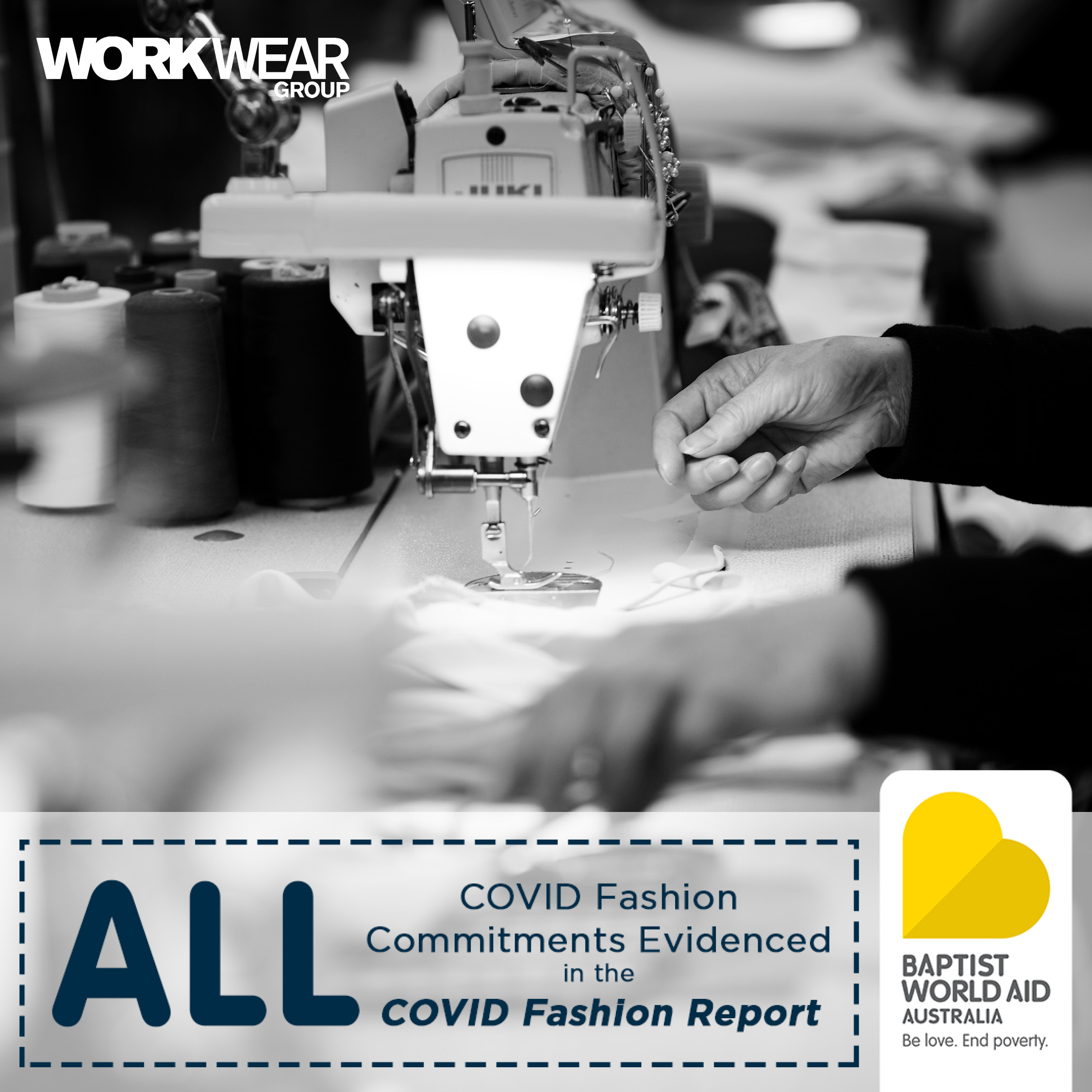Industrial and Safety - Ethical sourcing and modern slavery

The Industrial and Safety division is committed to establishing strong and respectful relationships with suppliers and ensuring confidence in its product offering by focusing on the ethical sourcing practices for direct suppliers, own-brand and customer-branded product manufacturers. This includes sourcing products in a responsible manner while working with suppliers to improve their social and environmental practices.
Since the introduction of the Modern Slavery Act 2018, there has been increased customer interest on the division’s approach to addressing modern slavery in its local and international supply chain and operations. Customers and clients want increased transparency within their own supply chains about human rights and ethical sourcing programs. The division has responded with a mix of engagement platforms, including questionnaires, face-to-face meetings, signing of declarations and aligning to customer audit programs.
During the reporting period (1 June 2020–31 May 2021), the division conducted 195 social compliance audits, identifying 108 critical breaches. Remediation occurred to adequately mitigate human rights risks in the supply chain and the division continues to work collaboratively with suppliers to further educate and encourage successful implementation of the Ethical Sourcing Policy. The most common critical breaches identified in the supply chain were related to health and safety, such as fire safety preparedness and working hours including excessive monthly overtime hours.
Each business manages its own risk-based ethical sourcing strategy and rolled out training throughout the year to support its team members and suppliers with better managing and identifying ethical sourcing risks.
Blackwoods became a signatory to the United Nations Global Compact Network Australia and active participants in the Modern Slavery Community of Practice sessions. This is a proactive initiative that encourages government, business and civil society to come together and highlight opportunities to share best practice and tackle emerging human rights issues.
Coregas continues to establish and strengthen its approach to ethical sourcing, focusing on incorporating branded goods not for resale and key services such as cleaning, labour hire and shipping.
Greencap conducted a modern slavery supplier risk assessment for service provision and supply of consumables, equipment and goods not for resale, using its recently launched Cm3 Modern Slavery module. The module enables businesses to track and manage ethical sourcing matters within their own supply chains and provides information and reports that support clients in the preparation of their annual modern slavery statements.
Workwear Group achieved an ‘ALL’ rating from the Baptist World Aid 2020 COVID Fashion Report, which recognises the immediate actions and initiatives implemented by organisations to support their supply chains during the COVID-19 pandemic. This rating means Workwear Group provided evidence of assistance against all six commitments. Only 43 companies worldwide received this rating and Workwear Group was the only uniform provider to receive this rating.
While New Zealand legislation is yet to change to support positive changes to addressing modern slavey, NZ Safety Blackwoods has joined the Collaborative Advantage, a shared space for collaboration among ethical and sustainable sourcing practitioners from NZ businesses. It is also one of many New Zealand companies to sign the first Open Letter to the New Zealand Government requesting an inquiry into a Modern Slavery Act for New Zealand.
